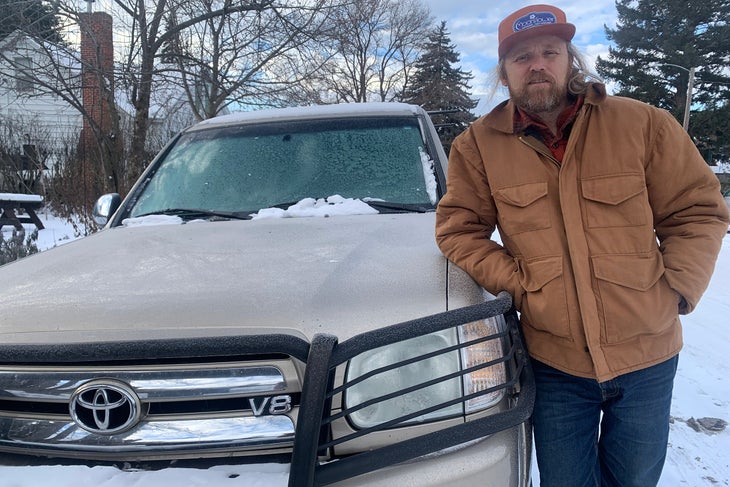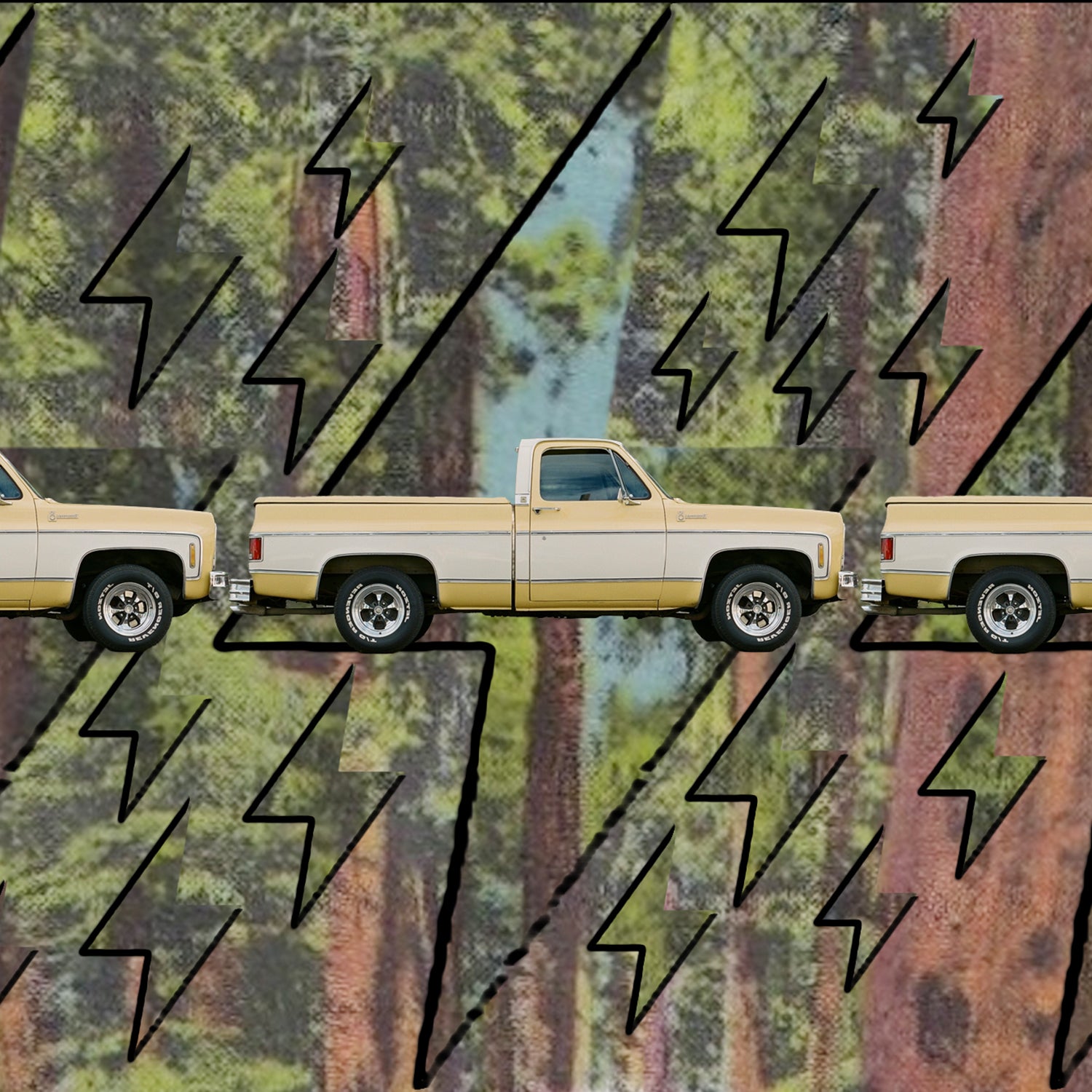Dear Sundog: Am I a jerk for not owning an electric vehicle yet? I live in a city, commute to work, and like to get outside. I have a decent car that gets decent mileage, but feel like I would be doing better for myself and the planet with an EV. Should I buy one? —Looking for Environmental Alternatives that are Friendly
Dear LEAF,
Let’s say you’re the average American who commutes 42 miles per day round-trip to a job that you find moderately soul-sucking. Maybe your labor serves a corporation that enriches its execs and shareholders while doing ill in the world. Maybe you work for an idealistic school or nonprofit, but are expected to work nights or weekends without additional pay. Or perhaps you simply sense that your one and only life on this gorgeous Earth is slipping past while you compose reports and gaze at Zoom.
In any case, you want to lead a more principled and less wasteful life than your vocation allows—you don’t want to be a jerk—so you upgrade your Corolla for an electric vehicle. Where will you find that $35K or $75K? If you can pull the funds directly from your savings or trust fund, then God bless you. Otherwise, you’ll borrow the money and make a monthly payment. You’ll have to keep doing your job in order to afford your green ride.
You will likely be paying interest to some bank. Will that bank use your hard-earned dollars to manifest a better society? More likely, their profits will go for millions in dividends to stock owners, or they’ll be loaned out again to finance all kinds of hideous adventures, from oil pipelines across to deforesting the .
So by reducing your dependence on the gas station—one tentacle of the fossil fuel industry—you’ve now become a partner to some other tentacle. Also, much of the electrical grid from which you’ll power that EV is still burning coal and gas to make electricity, so unless you’re charging from your own rooftop panels, you haven’t fully escaped even one tentacle.
So, no, LEAF, you’re not a jerk should you choose a different path. And yes, if you’re buying a car—especially to replace a gasoline car—it should probably be an EV. But there are so many variables.
You will no doubt have heard about the of using rare-earth elements like cobalt and lithium for electric batteries. It’s true: mining is bad. But this alone is not a valid reason to pass on buying an EV. The damage required to extract these miracle elements is much smaller than the alternative—drilling for oil and gas, and digging coal to produce electricity. If you can’t stomach the exploitation of nature and humans that is inherent to the industrial economy, let me gently suggest that you make a more radical lifestyle change than getting an EV—and try giving up your car altogether.
Sundog does not give advice he would not heed, so here’s my full disclosure: even I—literally a professor of environmental studies—do not own an EV, not even a hybrid. My family’s fleet consists of a 2005 Toyota Tundra that gets an alarming 15 to 22 miles per gallon, and a 2012 Subaru Outback that does only slightly better at 21 to 28.
As a matter of principle, I don’t think the only way to save the planet is by transferring billions of dollars from regular citizens to the corporations that build cars. As a matter of budget, I have never owned a new car. All my vehicles have cost less than $10K, except the Outback, which was $16K. I’ve actually never even sat in a Tesla, but I imagine driving one to be like having an orgasm while watching a looped clip of Elon Musk declaring: “I’ve done more for the environment for any other single human on earth.”
Let me state on the record that I love cars and trucks. They’ve provided much joy in my life, usually along a lovely lonesome stretch of two-lane blacktop or at the terminus of some rutted old ranch road. But those sort of experiences likely account for less than one percent of overall driving. In the past century, we have built American cities to accommodate people using cars for the most mundane of outings like commuting, shopping, and bar-hopping. The tradeoff is not just carbon emissions and pollution, but also sprawl, isolation and streets unsafe for walking and biking.
Turns out that in cities built before the era of the automobile—from New York to Barcelona to Kathmandu—you can get around without a car. When you remove traffic jams, parking tickets, the endless search for a place to park, the glum designation of a sober driver, and the claustrophobia of being locked in a metal box, city living is just more . . . fun.
When Sundog and Lady Dog set out to design our own lives, it was not to be in some Old World capitol, but rather in a midsized city in the Rockies. We didn’t aspire merely to burn fewer fossil fuels: we wanted to free ourselves from our car. We bought a house less than a mile from the place we work, less than a mile from the center of town. Our kid goes to preschool two blocks from here. Now we get around mostly by foot and bike, and can walk to trails and a creek. Many days go by where our dented guzzlers sit on the street—we drive each vehicle about 5,000 miles per year, about a third of the of 13,500.
The downside is that the houses in this neighborhood are a century old, dilapidated, small, and expensive. It’s a bit of a whack-a-mole game: our heating bills are low because we live in 1,000 square feet, but we can’t afford solar panels or a heat pump. We don’t spend much money on gasoline, but we can’t afford an EV.
Had we decided to live 21 miles from our jobs, we might have had a big new well-designed home and a slick new EV. But we love walking and biking; we want to teach our son that he can do the same, and that his parents are not his chauffeurs.
So why do we bother owning cars at all? For one, Montana is a lovely place to live, but it sure costs a lot to leave. Cheap airfares are not really a thing here. Neither is public transportation. So if you want to take a family vacation within a 1,000-mile radius, you’re likely driving. We bought the Tundra during the pandemic to tow a camp trailer (our “office”) and to haul lumber while we built a permanent office. Now we use the truck for long river trips, which entail carrying heavy loads for hundreds of miles through remote areas and down rutted dirt roads.
I don’t know of any EV that could do this. The Subaru is the town errand runner, and also takes us down bumpy roads to lakes and up icy mountains to ski. If it bites the dust and the cost of used four-wheel-drive EVs drops below twenty grand, I’d be happy to upgrade.
None of this makes Sundog feel particularly righteous. My point is that choosing a car is not a stand-alone decision as you forge an ethical life.

Mark Sundeen teaches environmental writing at the University of Montana. Despite his fleet of internal combustion engines, he refuses to purchase a parking permit and therefore commutes on a 1974 Schwinn Continental, with a ski helmet in winter.
If you have an ethical question for Sundog, send it to sundogsalmanac@hotmail.com


